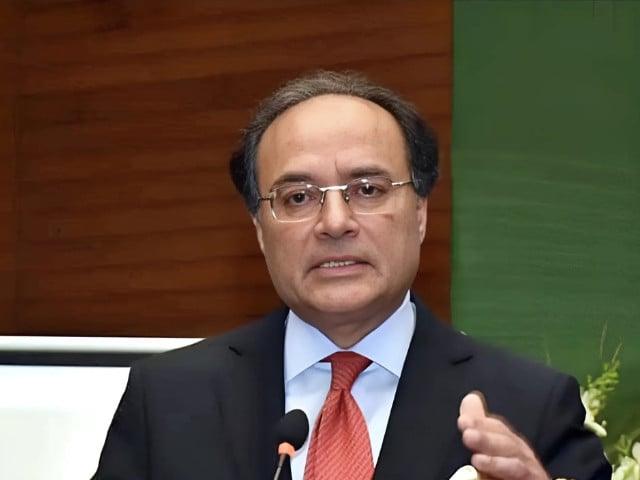Finance Minister Muhammad Aurangzeb has stated that there has been a significant reduction in interest rates, and in his opinion there is room for further reduction.
At a press conference held in Islamabad, he said financial stability was achieved in the country, which is crucial for economic development.
He also noticed significant improvements on the outer front, where transfers expected to exceed $ 36 billion this year.
The Minister of Finance mentioned that exports are also increasing, and at the end of June, the country’s currency reserves will reach up to $ 13 billion.
He added that there are no difficulties in opening credit letter (LCS) or transferring profits from companies abroad. On the domestic front, inflation has significantly decreased.
Muhammad Aurangzeb also said that the reduction in inflation should be transferred to the public and the Economic Coordination Committee (ECC) takes measures to tackle inflation.
The ECC has closely monitored inflation and has implemented new measures to control it.
He also commented on the significant reduction in interest rates and said there is still room for further reduction.
Reports from PwC and the Overseas Chamber of Commerce show increased investor’s confidence, where local investors also make investments and the stock market see an increase in investments.
The Minister of Finance reported that the RS870 billion value of purchases was made under Eidull Fitr compared to the RS720 billion last year.
He highlighted a 14% increase in cement production and a 40% increase in car sales along with a 30% increase in motorcycle sales during the first half of the year.
With regard to the International Monetary Fund (IMF), Muhammad Aurangzeb confirmed that an agreement had been reached at staff level and Pakistan had achieved the IMF’s structural benchmarks.
He noted that this is the first time Pakistan has met these benchmarks, which included steps for national fiscal agreements and agricultural income cathedral collection.
The Minister of Finance also mentioned that the provinces had taken steps for the first time to meet goals, and he expressed hope that the IMF’s Executive Board would soon approve the second tranch of a billion dollars.
About climate change, he stated that an agreement had been reached with the IMF and the funds were paid out in phases as Pakistan meets his climate change.
He emphasized that for the final IMF program, full implementation of structural reforms is crucial. Financial stability has already been achieved, but now the focus is on maintaining and promoting it.
Muhammad Aurangzeb shared that the tax-to-BNP ratio had been increased to 10.8%and tax collection was improved.
He pointed out the benefits of the digitization of the Federal Board of Revenue (FBR) and mentioned that the track and tracking system had been fully implemented for sugar, fertilizer and tobacco. However, its implementation in cement is still pending.
The Minister of Finance was concluded by announcing that a system will be introduced in the next financial year, which allows employees to directly pay their income taxes, making the process easier.
Meanwhile, the IMF has sent another corruption and government diagnostic mission to Pakistan for a few months to hold in -depth engagements with over 30 departments and institutions, including the Supreme Court registrar in Pakistan (SCP) and Accountability Court.
The mission, which began its interactions on Thursday, will stay in the country until April 14, according to Pakistani authorities.
The IMF’s response to the launch of the second corruption and government diagnostic mission since February was awaited until the filing of this story.



